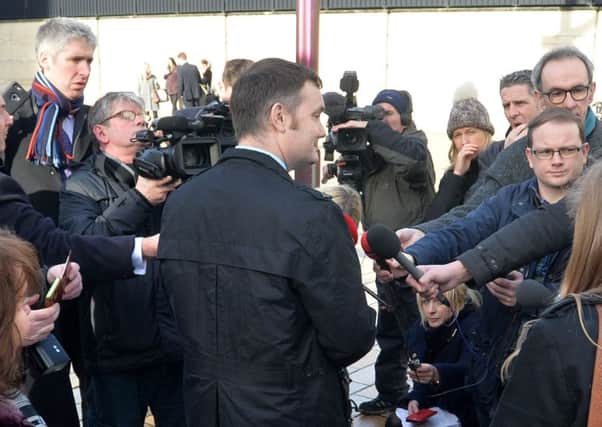Analysis: Court has to weigh highly complex issues in Ashers case


But this Ashers appeal is about as difficult as law gets.
It involves the immensely complicated interplay of Northern Irish, UK and human rights law.
Even the Oxford educated commentator Joshua Rozenberg, who is so widely respected in the legal world that he was made an honorary QC, and who was in court yesterday, seemed to be having to think hard as he sat listening intently to the complex proceedings.
Advertisement
Hide AdAdvertisement
Hide AdHe then stood among the media pack afterwards as it grilled the lawyers on what it all meant.
Mr Rozenberg told the News Letter: “I came to cover this case because they were strong arguments on both sides. Everyone is against unlawful discrimination, everyone respects the rights of individual conscience.”
He said that when the UK parliament devolved powers there had to be a way of resolving arguments as to whether a particular power had been devolved or not. That, in essence, is what is meant by a “devolution issue”, to which the court made reference in the legal arguments back and forth yesterday.
The Attorney General for Northern Ireland, John Larkin QC, thinks that the case involves two devolution issues covering the two grounds on which Ashers were found to have discriminated against Gareth Lee.
Advertisement
Hide AdAdvertisement
Hide AdAs the court emptied yesterday, Robin Allen QC, for the Equality Commission and Mr Lee, spoke to someone on his mobile phone.
“You will be glad to know I’m coming home tonight,” the English barrister could be heard saying.